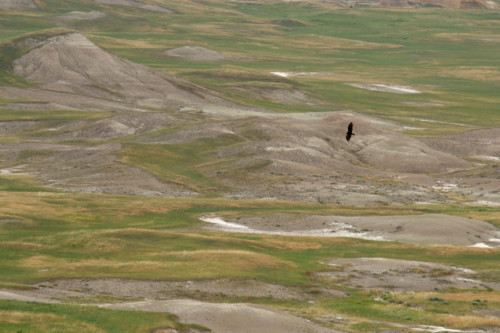How The Environment Became a Controversial Political Issue
The political landscape in 2017 has increasingly felt like a war waged between the Democrats and Republicans, with strict party lines drawn down the middle. Among the many issues that been forced to “pick a side”, is the environment, with Democrats traditionally coming to the defense of the environment (see #NoDAPL, preserving national park land, or supporting alternative energy), while Republicans often prioritize the interests of big oil and coal despite potentially negative environmental repercussions.
But why should an issue that undeniably affects everyone have become such a vehemently debated topic, with two camps arguing at either end?
In a recent article for PBS’s The American Experience, Naomi Oreskes, a distinguished professor at Harvard specializing in the history of science, weighs in, examining the movements and cultural zeitgeists that led to our current political climate. In conversation with Cori Brosnahan, author of the article, Oreskes explains:
When environmentalism begins to shift — to focus on controlling and preventing pollution — it dramatically changes the politics. Now, it’s no longer about protecting unique places for the use of an elite class. It’s about something that affects everyone. In some ways, that’s a good thing, because it broadens the political base. Political support for environmental regulation in the 1960s becomes very broad and bipartisan; major pieces of legislation are passed by huge bipartisan majorities in Congress. In fact, in several cases, Republicans are more in support of environmental protection than Democrats are.
But then that changes, too. When people begin to focus on pollution, economic activity becomes implicated in a much more direct way. Of course, protecting natural beauty in places like national parks also limits economic activity to some extent — and some industrialists, such as foresters — objected for that reason. But by and large the economic impact of the national park system is local. Now, however, you’re talking about the recognition that pretty much all forms of economic activity — any manufacturing, any transportation, any electricity generation — is creating pollution. You have the recognition that pollution is tied up with the economy, so any attempt to regulate pollution is an attempt, on some level, to regulate the economy. That invites a profound and problematic political argument. It is profound, because it taps into the central question of the function of government, and its role in regulating the marketplace and protecting people from harm. It is problematic, because if you argue that the government must intervene in an expansive way, it invites the criticism that you’re a Communist: you’re saying we have to control and regulate economic activity — that the government needs to step in and control economic activity. (Recall that this is all going on during the Cold War, when the accusation of communism was a very serious one.) At the same time, you’re criticizing the private sector because it’s doing this real damage. Up until now, they’ve pretty much got away with it and haven’t had to pay the cost of pollution. Now you’re saying, “Well, yes, you do.”
Read the full article on Medium here.



































